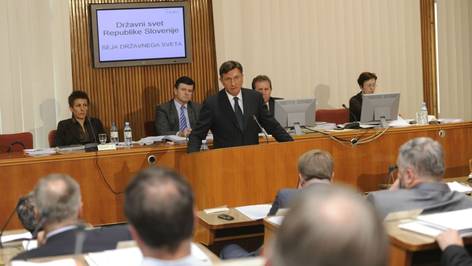NEWS
Prime Minister Pahor on Slovenia's potential commitments within the Pact for the Euro
The Slovenian Prime Minister Borut Pahor today attended the 37th session of the National Council, where he outlined to its members Slovenia's potential commitments within the Pact for the Euro for the period 2011–2012.
Prime Minister Pahor first summarised the main guidelines of the Euro-Plus Pact and its objectives, and then went on to emphasise that not only have the Euro Group countries joined the Pact, but also other EU Member States such as Bulgaria, Denmark, Latvia, Lithuania, Poland and Romania. Prime Minister Pahor added that Slovenia has done a good and credible job in preparing the Pact-related commitments. He therefore hopes to be able to present these commitments at the June EU summit — and also formally. Moreover, he presented his views on the current financial situation in the Euro Group countries before briefly bringing a number of eurozone countries up to speed on the implementation of the existing financial assistance schemes.
Elaborating on the national commitments already adopted by the Slovenian Government, the Prime Minister referred to those intended for the purpose of fulfilling the four broad strategic objectives of the Pact: fostering competitiveness, promoting employment, ensuring the sustainability of public finances and reinforcing financial stability.
At the close of the session, the Prime Minister emphasised the necessity of adopting the pension scheme reform in the referendum on 5 June. In his view, this reform constitutes one of the key elements in guaranteeing the sustainability of the public finances, as well as enabling Slovenia to meet one of the conditions of the Pact. Should the pension scheme reform not pass the referendum stage, the Government has a contingency scenario in place; this includes the introduction of an intervention Act, which will — by different means —ensure the sustainability of the public finances, concluded the Prime Minister, who then went on to field questions posed by National Council members.




